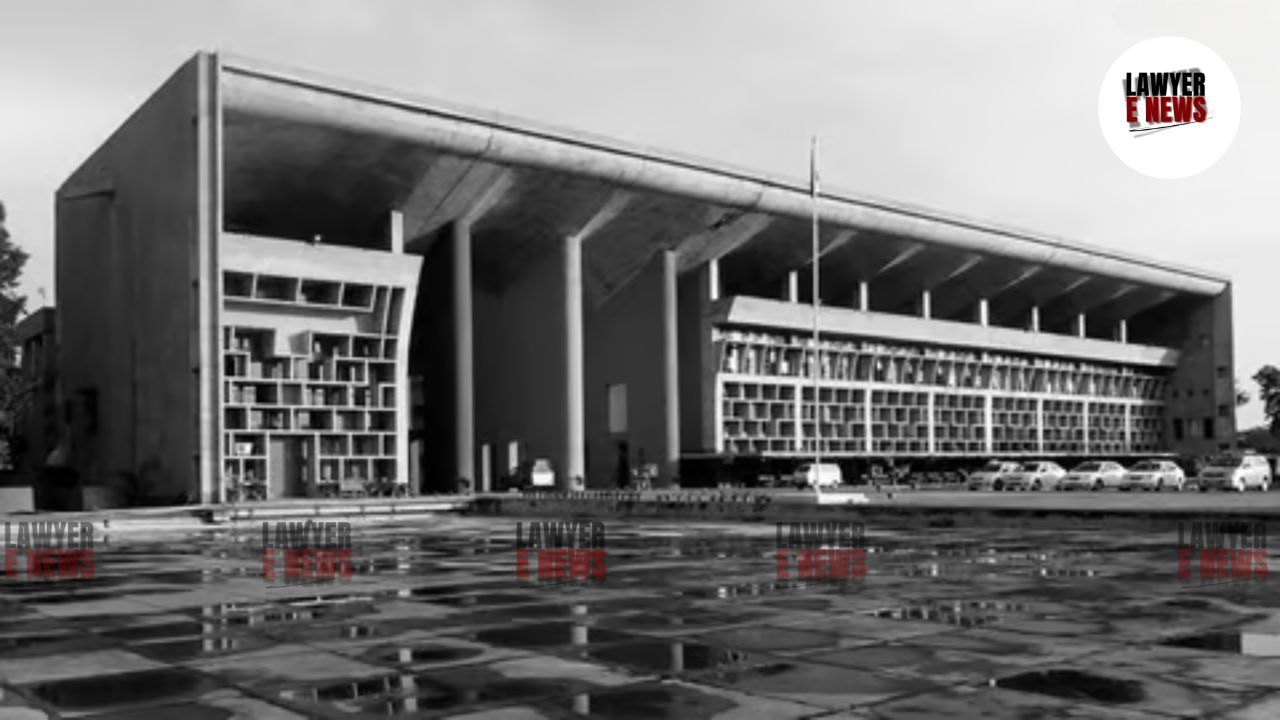-
by Admin
15 February 2026 5:35 AM



On September 5, 2024, the High Court of Punjab and Haryana, in the case of Amita Mehta vs. State of Punjab and Others, dismissed an appeal challenging the acquittal of the accused in a case involving allegations of forgery, cheating, and criminal conspiracy. The court upheld the judgment of the Judicial Magistrate Ist Class, Amritsar, delivered on November 21, 2018, and reaffirmed that the appellant had failed to substantiate her claims beyond reasonable doubt.
The dispute arose over land situated in the village of Madh Bhilowal, Amritsar, which belonged to the family of the appellant, Amita Mehta. The appellant alleged that Rai Sahib Mehta, his wife, and his sons conspired with government officials to fraudulently alter revenue records in their favor, despite an ongoing appeal regarding the correction of the khasra girdawari in the court of the Deputy Commissioner of Tarn Taran. The appellant claimed that the accused manipulated the records while a civil suit and an interim stay order were pending in a separate court.
The appellant's complaint led to the summoning of the accused under sections 420 (cheating), 467 (forgery), 468 (forgery for the purpose of cheating), and 120-B (criminal conspiracy) of the Indian Penal Code (IPC). However, following the trial, the accused were acquitted in 2018.
The key legal question revolved around whether the accused had indeed conspired to commit forgery and cheating by altering the revenue records without proper authority and in violation of the interim stay order from the civil court. The appellant argued that the trial court had overlooked crucial evidence, while the defense contended that the prosecution had failed to prove its case.
Whether the accused had unlawfully altered the khasra girdawari despite ongoing legal proceedings.
Whether there was sufficient evidence to prove a criminal conspiracy and forgery as alleged by the appellant.
Whether the public officials involved were guilty of misuse of their official positions.
The High Court, presided over by Justice Jasjit Singh Bedi and Justice Sudhir Singh, reaffirmed the trial court's findings. The court meticulously analyzed the evidence presented by the appellant and concluded that there was no substantial proof of the pending appeal before the Deputy Commissioner of Tarn Taran regarding the disputed khasra girdawari. The court emphasized that without proving the pendency of this appeal, the allegations of cheating and forgery could not stand.
Additionally, the appellant failed to establish that the interim stay order from the civil court prohibited the accused from altering the khasra girdawari. The only evidence provided by the appellant was an injunction related to a different set of khasra numbers, which did not cover the entire land in question. As such, the court concluded that no specific order prevented the accused from correcting the revenue records.
Insufficient Proof of Appeal: The appellant could not prove that an appeal regarding the correction of the khasra girdawari was pending before the Deputy Commissioner of Tarn Taran, a critical element required to establish forgery and cheating charges.
Interim Stay Order Lacked Specificity: The court noted that the appellant had failed to provide adequate evidence of a stay order that explicitly barred the accused from making changes to the revenue records.
Forgery Allegations Unproven: The court rejected the allegations of forgery against Chander Shekhar, a government official, noting that his actions were in line with oral orders from his superior, as testified by a witness and supported by documentary evidence.
Public Officials' Immunity: The court held that the accused public officials, who had entered the disputed records in the roznamcha, were merely performing their public duties, and the absence of prior sanction from the state made their prosecution invalid.
Presumption of Innocence: Citing the Supreme Court's ruling in Kallu @ Masih & Ors. vs. State of Madhya Pradesh (2006), the High Court reiterated that an appellate court should not interfere with an acquittal unless the trial court’s judgment is based on unreasonable or implausible grounds. The court found that the trial court's decision was well-reasoned and supported by the evidence on record.
The High Court concluded that there was no reason to overturn the trial court’s acquittal of the accused, as the appellant had failed to prove her case. The court reiterated the principle that in criminal trials, the presumption of innocence remains with the accused, and mere doubts or conjectures are insufficient to secure a conviction.
Date of Decision: 5th September 2024
Amita Mehta vs. State of Punjab and Others
